Today I am thrilled and honoured to have university lecturer (called a “professor” in the USA and elsewhere), Andy Sutton on the blog. Andy lives with prosopagnosia, also known in layman’s terms as face blindness.
Andy is a UK male born in the early 1960s and is a father of two children.
Today is publication day of my standalone novel, Dead Blind which features a cop, Ray Patrick, who acquires prosopagnosia after a car accident at work. Andy has very kindly offered to tell us about the reality of living with this disorder.
Thank you, Andy.
I now hand the blog over…
I think I’ve probably always been face blind but wasn’t aware that most people were not until I was over forty years old. I have above average IQ (despite blond moments) and as far as I can tell my brain functions more or less normally except for this one aspect. My memory is normal, as is my vision.
Though it does impact on my life (I don’t easily recognise my own children, for example, and struggle to recognise my students), I think of it as kind of quirky and interesting, and not a medical condition. Although I have quite severe face blindness, as impairments go it’s a relatively OK one to have (I can think of plenty of afflictions I’d not swap it for!). Hence I’m not in favour of medicalising it, and I prefer the plain term “face blindness” over the classical Greek form “prosopagnosia” in every day discussion, and for public awareness (why use classical language for public awareness which is impenetrable to most of the public?). As a psychology lecturer I can switch to the technical term for more technical discussions, but not to make it sound exotic, or me sound educated. That’s my personal view, and I respect others.
 If I didn’t already know this is a picture of me I wouldn’t recognise it. I remember once somebody showed me a picture that she carried around with her. It was cropped from a waist-up shot, and looked similar to this, so I didn’t recognise the original photo she’d cropped it from. I had to ask who it was.
If I didn’t already know this is a picture of me I wouldn’t recognise it. I remember once somebody showed me a picture that she carried around with her. It was cropped from a waist-up shot, and looked similar to this, so I didn’t recognise the original photo she’d cropped it from. I had to ask who it was.
I have lots of ways of coping, the most obvious being that this is a problem with faces only, so I have the same chance of recognising someone by hairstyle, clothing, context, stature, gait, voice etc as anyone else. There are lots of people that any of us can recognise from behind, and I can do that the same as anyone. I don’t know whether it’s a learned compensation but I’m relatively good at recognising voices.
The way I see it: normally people are born with an enhanced memory for faces – a special ability that makes faces easier to process and recognise (much like we have a special ability to learn language). I don’t have that. So I’m as likely to recognise someone by their face as I am by their hand (I pinched that analogy from someone on the Facebook group). Or, I’m as likely to recognise a face I’ve seen before as an apple I’ve seen before. The Wikipedia article has this to say
| “The specific brain area usually associated with prosopagnosia is the fusiform gyrus, which activates specifically in response to faces. The functionality of the fusiform gyrus allows most people to recognize faces in more detail than they do similarly complex inanimate objects. For those with prosopagnosia, the new method for recognizing faces depends on the less-sensitive object recognition system.“ |
Imagine your mobile phone didn’t store contacts and recognise numbers, so it doesn’t say who is calling, just shows their number. That’s how I start many face to face encounters.
And like apples, I can see faces, draw a likeness of one in front of me, see differences between them, and decide whether one is attractive or not. I just find it hard to recognise a particular one if I see it again. (That’s my experience, other people experience face blindness differently.) The time I most struggle is when I can see only a face. For example very close up face photos, or when my children would be in a school play all dressed the same with some kind of headware (angels, kings, etc) then I wouldn’t know which was mine.
If you saw one of these again, would you know which it was (without trying to learn)?
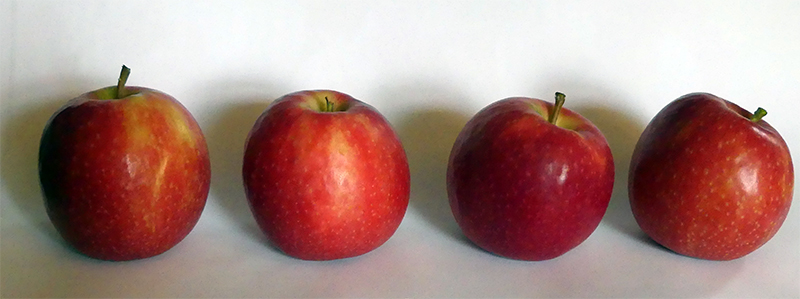
(I must say having assembled what I thought were four similar apples, they look more different to me than most faces!)
Some face blind people have trouble actually perceiving a face. I don’t – for me it’s about remembering it for later.
If I’m watching a movie I struggle when two characters look similar (and to me most Hollywood stars look similar), or if one character has a change of appearance along the way. People who know me get used to me leaning over and asking “Which police officer is that?” or “Who’s that?”. Though, again, often voice, context or other clues give it away.
I find it particularly hard to recognise people from photos. I think that’s because a moving face contains a lot of other information (characteristic facial expressions, for example) that help me.
I would have no way of realising that these four images are of the same person. I can never recognise Madonna because she always changes her hair!
I went through much of my adult life not realising that I was face blind, and just assumed everybody struggled and coped like I did.
Having studied psychology as an undergrad and postgrad I have a certain amount of understanding of memory and perception in the brain. I lecture in psychology (and research methods), but my field is criminal and social psychology so I don’t have very specialist knowledge about this. I work with people who do, and am lucky enough to be able to tap into colleagues’ knowledge and ideas out of curiosity.
I have certain strategies that I find work.
- When I encounter people (this includes new groups of students) I tell them about it. I ask them to forgive me if I don’t recognise them, especially away from uni.
- If people seem to recognise me, I assume I know them, so I engage in an initial “Hi, how are you?” exchange and almost always by the time they’ve spoken I know who they are.
- If I arrange to meet people I try to have a fairly exact meeting place, ideally outside a venue if it’s a public place such as a pub. Sometimes, especially with new people, I’ll say before meeting what I’m wearing, in the hope they’ll reciprocate (even though I may have seen their photo). If they don’t, I ask. I always try to be first, so they have to find me rather than me find them.
My most embarrassing face blind moment (that I’m aware of)? Calling at the home of my daughter’s friend, to pick up my daughter, and asking the wrong girl if she was ready to come home.
Thank you, Andy. This was taken from Andy’s website Faceblind.me
Dead Blind
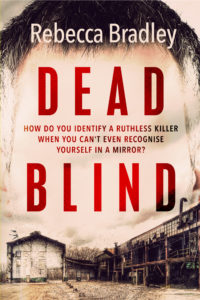 How do you identify a ruthless killer when you can’t even recognise your own face in a mirror?
How do you identify a ruthless killer when you can’t even recognise your own face in a mirror?
Returning to work following an accident, Detective Inspector Ray Patrick refuses to disclose he now lives with face blindness – an inability to recognise faces.
As Ray deceives his team he is pulled into a police operation that targets an international trade in human organs. And when he attempts to bring the organisation down, Ray is witness to a savage murder.
But it’s a killer he will never remember.
The pressure mounts as Ray attempts to keep his secret and solve the case alone. With only his ex-wife as a confidant, he feels progressively isolated.
Can he escape with his career and his life intact?
Find out more HERE.

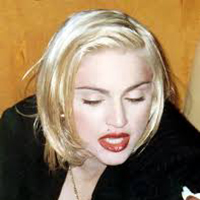

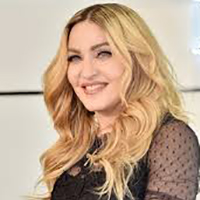

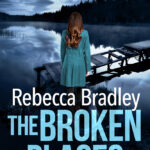

This is fascinating. Thank you for sharing these insights with us. And Rebecca, congratulations on your release! I’m very excited for you and wish you all success.
That was very interesting. Amazing to have this for 40 years and not know it. But how would you?